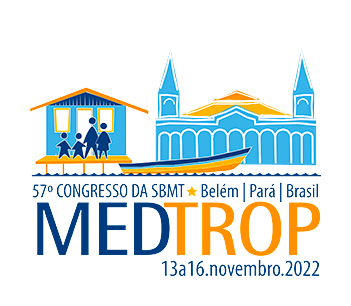Dados do Trabalho
Título
First report of fungal meningoencephalitis by Penicillium chrysogenum in Brazil.
Objetivos(s)
The aim of this work is to present the first case of meningoencephalitis associated with brain injury caused by P. chrysogenum, in an immunocompetent patient admitted to Hospital Naval Marcílio Dias, Rio de Janeiro, Brazil.
Relato do Caso
A 14-year-old Brazilian Woman was admitted in the hospital on September, 2021, with nonspecific frontal headache, photophobia and vomiting, without fever. We decided to perform a brain CT-scan and a lumbar puncture to further investigate the meningeal finding of neck stiffness on physical examination. Four days after the admission, the Microbiology Laboratory reported the growing of fungus in CSF cultures and this fungal isolate was sent for taxonomic identification in Laboratory of Taxonomy, Biochemistry and Bioprospecting of Fungi (LTBBF), Fiocruz, RJ.
The fungus was grown in PDA (potato dextrose agar) medium at 30°C. Were observed a grayish green color colony and globose conidia arranged in chains from the ends of the phialides. Vegetative hyphae were septate. According to these phenotypic characteristics, the fungus was identified as a species of the genus Penicillium, but phenotypically incompatible with Penicillium marneffei, a species associated with severe infections. Was performed partial sequencing of the region internal transcribed spacer (ITS), using ITS1 and ITS4and the sequences compared by BLAST with sequences available from NCBI / GenBank, and there was 100% agreement P. chrysogenum.
Antifungal therapy was started after identification the positive culture and detection of fungus Penicillium spp., with Voriconazole and Amphotericin B. The patient was promptly transferred to the ICU and Magnetic Resonance Imaging was performed after clinical worsening and showed extensive cerebral venous thrombosis. A new CT scan of the head showed signs of acute supratentorial intracranial hypertension. Emergency neurosurgical treatment was indicated and a thrombectomy by neurointervention was chosen, with partial success. Then, full anticoagulation was started. Dexamethasone and anticonvulsant were already underway. The patient died after 29 days of hospitalization with mixed shock refractory to clinical support measures.
Conclusão
In conclusion, we highlight the importance of the first report of meningoencephalitis in an immunocompetent patient, caused by P. chrysogenum, registered in Brazil, emphasizing the need for further studies to determine an effective treatment with the least possible side effects for patients infected by rare fungi.
Área
Eixo 12 | Infecções causadas por fungos
Categoria
NÃO desejo concorrer ao Prêmio Jovem Pesquisador
Autores
Danielly Corrêa-Moreira, Tulio Vieira Mendes, Gisela Lara da Costa, Manoel Marques Evangelista Oliveira
